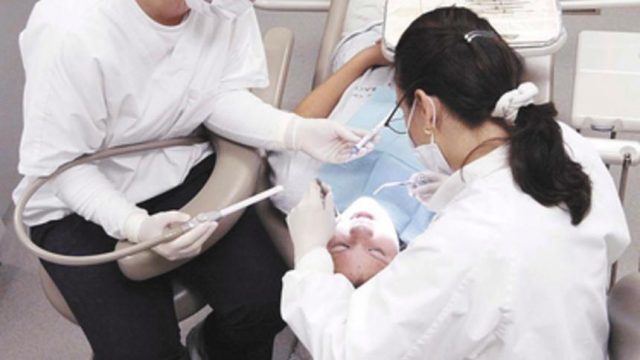Dr. Brent Holman: Dental Therapy Is an Unproven Solution for Dental Care Access

A shortage of dentists affects 40 percent of North Dakota’s counties and is expected to worsen as dentists retire. A proposed bill would allow dental hygienists to perform certain procedures under supervision. Forum file photo
Two years ago, North Dakota legislators were asked to approve the addition of a dental therapist model to the state’s dental community. Out-of-state proponents of the model claimed dental therapists would expand access to care in the state.
Legislators disagreed, and resoundingly defeated the bill because there was limited evidence to suggest that dental therapy actually expanded access to care or benefited dental patients.
It’s been two years, and legislators are once again being asked to approve this model under the same promised outcome. So, what has changed since 2015? With regards to the dental therapy model, the answer is: Nothing. There continues to be no solid evidence to prove that dental therapy improves a population’s oral health.
For example, in Minnesota, where dental therapy has been in play for eight years, 44 percent of low-income children still struggle to access dental care, according to the Health Policy Institute. In North Dakota, where we have opted to address issues using a collaborative, tailored approach, just 7 percent of children have difficulty accessing dental care.
We’re on the right path and can continue to reduce barriers and expand access to care by supporting the collaborative approach that considers our state’s unique environment.
There are more examples of how this approach is working:
- Through a collaborative effort involving the state’s oral health program, oral health professionals and private practices, we’ve steadily grown the number of children who receive dental sealants through Seal!ND, the school-based outreach program. More than 3,000 low-income children in 42 schools received sealants during the last school year, and we expect those numbers to continue to climb this year.
- We support outreach opportunities that directly benefit seniors. In 2001, we established the Donated Dental Services program in North Dakota, which has since provided almost $2.9 million of care to vulnerable seniors. Currently, 137 dentists participate in the program in North Dakota.
- We support mobile outreach to underserved communities through programs like the Ronald McDonald Care Mobile, and we are actively exploring teledentistry programs, which would further expand access to care in rural communities.
- We support much-needed educational outreach to help Medicaid patients and others understand the importance of regular dental care.
- Aided by a strong economy and a loan repayment program we helped develop which encourages dentists to practice in non-profit clinics and rural areas, North Dakota led the nation in the in-migration of dentists from 2011-2016, as reported by the Health Policy Institute.
Proponents of the dental therapy model continue to suggest that this unproven model will reduce the cost of dental care. This is simply not true. Insurers and states pay set fees for dental procedures, regardless of who performs them.
Proponents also claim no harm can be done by allowing the licensure in North Dakota, and that the free market will dictate its success. But there is a financial investment that would be required from the state to create and support this licensure. Considering our state’s current economic situation, this would be irresponsible. And, oral health is not a commodity. Oral health is linked to overall health, including cardiovascular, diabetic, and autoimmune disease, among others.
Allowing the dental therapist model a “pass” when it comes to setting the bar on evidence-based training standards appears potentially to harm those it professes to help the most — low-income patients with barriers to care. Witnessed by the nation-leading in-migration of dentists in the last 5 years as reported by the Health Policy Institute, as well as the corresponding decrease in the busyness of North Dakota dentists as found by the UND Center for Rural Health, the free market is already working.
As dentists, we understand there are access-to-care concerns in North Dakota. There are in every state. But instead of continuing to push an unproven model of care like dental therapy, we ask that our legislators support the solutions that can make an actual difference for North Dakotans.




